- Home
- Iain Banks
The Business Page 3
The Business Read online
Page 3
'Whit?'
'Never mind. May I buy one of your sweets?'
'Aye. Ah've no many left, but. An there's nae fizz.'
'No fizz?'
'Aye. Nae Irn Bru, or American Cream Soda. Ah finished both bottles.'
'Just a sweet will do, then.'
'Whit dae ye want? Ah've Penny Dainties and Black Jacks. Or there's a few wee lucky-bag sweeties left.'
'I'll have a Penny Dainty, please.'
'That's a penny ha'penny.'
'How much?'
'A penny ha'penny.'
'A penny and a ha'penny?'
'Aye.'
'For a Penny Dainty?'
'That's the price.'
'But that's a fifty-per-cent mark-up on the normal retail charge.'
'Aye, still, but. That's the price.'
'So you said. Rather steep, though, isn't it?'
'Aye, but that's the price. D'ye want it or no?'
'Gerald, do you have any change?'
'Aye, ma'am. Hold on…Ah, I've got a thruppenny bit. That any use, ma'am?'
'Thank you, Gerald. Would you like a sweet?'
'Thanks, ma'am. Aye, wouldnae mind.'
'Tell you what, Kate. I'll give you tuppence ha'penny for two Penny Dainties. How's that?'
'Nut.'
'Why not?'
'Two's thruppence.'
'But I'm buying in bulk, relatively. I'm looking for a discount.'
'Whit? Whissat?'
'Didn't you get a discount for buying in bulk when you bought your stock?'
'Missis, ah goat these oot the machine at the bus station.'
'Ah, so you paid full retail. Still, that's your problem. My offer stands. Tuppence ha'penny for two.'
'Nut.'
'Kate, your little friends look like they're finishing their games. You might not sell much more. You could be left with unsold stock. It's a good offer. Here: take the thruppence. Then you give me two Penny Dainties, and a ha'penny change.'
'Nut. Two cost thruppence.'
'One can be too stubborn in the retail business, Kate. Flexibility is what carries a concern through changing circumstances.'
'Whit?'
'The rain's getting heavier, Kate. I'm sitting here in the dry. You're getting soaked and your pals are leaving. Two for tuppence ha'penny.'
'Nut.'
'You're being pigheaded, Kate. Maintaining or adjusting your margins should be a matter of practical calculation, not pride.'
'Ah know. Gie us the thruppence an I'll give ye the two Penny Dainties an ah'll gie a Black Jack as well. They're usually two fur a penny ha'penny or three fur tuppence.'
'Getting rid of more stock. Very sensible. Okay. It's a deal. There you are. Thank you. Gerald?'
'Ma'am?'
'Catch.'
'Thanks.'
'Here, Kate. You have the Black Jack back: I think it might stain my teeth…Now what?'
'Ma maw sez never take sweeties frae strangers.'
'Kate, don't be ridiculous: you just sold me this. However, your mother is quite right, I suppose. If you don't want it…'
'Na, okay, then. Ta.'
'My, you were hungry.'
'Aye. No much eatin in wan a those.'
'How's it going, Gerald?'
'Nearly there, ma'am. Just doin up the nuts. Be back on the road in five minutes.'
'Fine. Do you do this often, Kate?'
'Whit? Sellin stuff?'
'Yes.'
'Nut. Nivir done it before. Want tae know a secret?'
'What was that? A secret?'
'Aye. Promise ye'll no tell anybudy but?'
'I promise.'
'Cross yer hert an hope tae die?'
'Absolutely.'
'Ah goat the money frum ma uncle Jimmy. He let me play wi the pennies.'
'Oh. Really?'
'Aye, they're Irish pennies, cos he'd been tae Ireland on his boat.'
'Irish pennies?'
'Aye. They're the same shape as oors, an that, cept they've goat harps oan them. But the machine doon the bus station takes them fine.'
'And your uncle just gave you these? You didn't have to pay for them?'
'Nut. He just gied us them.'
'Ha! So you didn't pay full retail at all! Every penny you made was clear profit! You little rogue! Did you hear that, Gerald?'
'I'm shocked and appalled, ma'am. Enterprising wean, though.'
'Aye, but no fur everyhin. Ah had tae pay ma own money fur sum oh the sweeties, and the bottles oh fizz ah hud tae pretend ah wiz gettin fur ma maw. Ah've still tae take full yins back tae her.'
'And how much were you charging for the pop?'
'Penny a cup.'
'Those your mum's teacups?'
'Aye, missis. We'll no need thim till taenight.'
'I see. Oh, hello. Who's this, Kate?'
'This is Simon.'
'How do you do, Simon.'
'Hello, miss. Katie, it's affy wet. Ah want tae go hame. Zat okay? Ye cummin?'
'Aye. Here's the Penny Dainty. Dae ye want some lucky-bag sweeties an aw?'
'Awaye.'
'Ah'll gie ye them when ah get hame, okay?'
'Aw aye, that's gret. Thanks, Katie. Can we go noo, though but? Ahm soakin. Ah fell in the water jump.'
'Ah-hah. Let me guess: Simon here is your security.'
'Nut. He's makin sure nun ah these wee shites nick ma money.'
'Same thing. Katie, I'm sure you won't accept a lift from a stranger, but could you tell me where you live? I'd like to talk to your mother.'
'Missis, you said ye widnae say anyhin! Goad'll git ye fur crossin yer hert an hopin tae die! Ye'll die, so ye will! Aye, an ah'm no fuckin kiddin!'
'Kate, Kate, calm down. I'm not going to say anything about the nature of your capital…about the pennies you used down the bus station. I swore I wouldn't, and I won't.'
'Aye, well, ye'd better no.'
'Kate, is your mother very young? I take it your father's not around, is that right? That's a nice wee dress, but it's a bit thin for this weather, and too small for you. You look hungry and too small for your age. Do you go to school every day? Are you doing well there?'
'Ahm goin hame.'
'Ready to roll, ma'am.'
'Thanks, Gerald. Just a minute. Kate, turn round. I'm serious. This is serious. Do you want to stay here for the rest of your life? Well, do you? Kate: what do you want to be when you grow up?'
'…Hairdresser.'
'Do you think you'll get to be one?'
'Mibby.'
'Kate, do you know of all the other things you could be?'
'…Ma pal Gale wants tae be a air hostess.'
'Mon, Katie. Ahm freezin.'
'There's nothing wrong with being a hairdresser or an air stewardess, Kate, but I think there might be a lot of other things you could be, if you wanted. If you knew. Let me talk to your mother. May I talk to her?'
'Katie, ahm fuckin freezin, so ah am.'
'Missis…you're no a bad wummin, are ye?'
'No, Kate. I'm not a saint, and I've used my share of Irish pennies in my past, but I'm not a bad woman. Am I a bad woman, Gerald, would you say?'
'Certainly not, ma'am. Always been very nice to me.'
'Katie, mon…'sfuckin brass monkeys oot here, so it is.'
'Ye could gie us a lift, then. Zat okay, aye?'
'Really? Well, yes.'
'Aye. Come oan, Simon. We're get tin a ride home in this wummin's braw big car. Wipe yir feet.'
'Eh?'
And that is how I met Mrs Elizabeth Telman, a Level Two executive in the Business, one rainy Saturday afternoon in the autumn of 1968, outside Coatbridge, to the east of Glasgow.
Mrs Telman was one of those people who always seemed about six inches taller than she really was, to me. Even now when I think of her, she appears in my memory as a tall, elegant woman, as lithe and slim as my mother was wee and dumpy, yet the two were within a couple of inches of each other in height and not really that d
ifferent in build. I suppose Mrs Telman just held herself straighter. She had long, raven hair which she only stopped dyeing, gradually, in her seventies (my mother was mousy brown, though I inherited hair somewhere between fair and blonde, apparently from my maternal grandmother). Mrs Telman had a wide mouth and long fingers and an accent that sometimes sounded American, sometimes English, and sometimes something else entirely, something tantalisingly foreign and exotic. There was a Mr Telman, but he lived in America; the two had been estranged since barely a year after their marriage.
Mrs Telman had Gerald drop Simon at his house and then took me to the local shop where I bought my two replacement bottles of fizz. We arrived at my house just as my mother was staggering up the path with her carry-out, fresh, if that's the word, from the pub.
I think Mrs Telman decided she wasn't going to get much sense out of Mother right then, and so arranged to return the following morning.
My mother threatened to slap me for talking to a stranger. That night, very drunk, she cuddled me to her, her breath sweet with the smell of fortified wine. I tried not to squirm, and to appreciate this unusually drawn-out burst of physical affection, but I couldn't help thinking of the rich, subtle, beguiling odours in Mrs Telman's car, some of which seemed to come from the car itself, and some from her.
She reappeared, to my surprise, the next morning, before my mother was up. Once my mother was dressed we went for a drive. I was given a Milky Way and got to sit up front with Gerald, which was good, but I couldn't hear what was going on in the back because of the glass partition, which was annoying. Gerald kept me entertained by telling me what he thought the other drivers were saying and thinking, and letting me work the indicator switch on the dashboard. Meanwhile my mother and Mrs Telman sat in the back, swapping my mother's Woodbines and Mrs Telman's Sobranies, and talking.
That night I got to sleep with my mother for the first time in years, all the way through to the morning. I was hugged even more fiercely, and I puzzled over her hot tears.
The next morning Gerald picked my mother and me up and took us through to Edinburgh, to Mrs Telman's huge, grand red sandstone hotel at the end of Princes Street. Mrs Telman wasn't there herself: she was off doing something important somewhere else in the city. We went to a big room, where — to my consternation and my mother's embarrassment — I was washed again by a large lady dressed like a nurse, given a medical inspection, and then measured and dressed in a scratchy shirt, skirt and jacket that were the first entirely new clothes I'd ever worn. Part of my horror at all this was because I thought we were in a public room where anybody might walk in and see me in my knickers; I didn't realise that these rooms were Mrs Telman's, that we were in her suite.
I was taken to another room where a man gave me lots of sums and other tasks to do; some were purely arithmetical, some were questions about lists, some consisted of looking at little diagrams and then looking at others and deciding which one fitted with the first lot, and some were more like little stories I had to complete. They were fun. I was left alone with a comic while the man went away.
Mrs Telman came and took us to lunch in the hotel. She seemed very happy to see me, and she kissed my mother on both cheeks, which made me jealous, though I wasn't sure of whom. Over lunch, while my mother and I swapped conspiratorial looks as we tried to work out which cutlery to use, I was asked if I wanted to go to a special school. I recall being horrified. I thought special schools were where bad boys were sent for thieving and vandalising, but after this was cleared up and I was assured I would get to go home of an evening, I agreed, tentatively.
I started at Miss Stutely's School for Girls in Rutherglen the next day. I was a year behind the others, but physically no bigger than any of my classmates, and shorter than several of them. I was picked on for three-quarters of that first day, until I sent a girl home with a broken nose following a fight during afternoon play-time. I was almost thrown out and had to sit patiently through several stern talkings-to.
A tutor came to our house in the evenings to give me extra lessons.
Mrs Telman found my mother a job in an office-machine factory in Stepps; the same factory Mrs Telman had been on her way to inspect when her car had picked up a puncture. We ate better, we had proper furniture, a phone and, soon, a colour television. I found I had a lot fewer uncles than I'd thought I had, and Mother stopped walking into doors.
When I left Miss Stutely's and entered Kessington Academy in Bearsden, we moved from our terrace in Coatbridge to a semi in Jordanhill. My mother was now at another factory, helping to make things called computers, not adding machines. She never married but we went on holidays with a nice man called Mr Bullwood. Mrs Telman came to visit us every few months, and always brought book tokens for me and record tokens, clothes and little things for my mother. My mother died suddenly at Easter 1972, while I was on a school holiday in Italy. We had taken buses, ferries and trains to get to Rome, but I flew back alone. Mrs Telman and Mr Bullwood met me at Glasgow Airport and took me in Mrs Telman's car — still driven by Gerald — straight to the cemetery in Coatbridge. It was a warm, sunny day; I remember watching her coffin disappearing behind the curtains at the crematorium, feeling worried that I could not seem to cry.
A smallish man with shaking hands, wearing a shiny and badly fitting suit with a black armband up by one shoulder, came to me afterwards and breathed whisky over me, telling me with tears in his rheumy red eyes that he was my father. Mrs Telman put an arm round my shoulder and I let myself be guided away. The man shouted things at us.
Everything changed again. I was sent to board at an international school in Switzerland run by the firm Mrs Telman worked for; I was miserable there, but no more than I'd been in the months between my mother dying and completing the term at Kessington Academy. I studied for my baccalaureate and found a keen, solitary release in skiing and skating.
I was surrounded mostly by forbiddingly bright girls from families which seemed to possess infinitely deep reserves of money, taste and talent, and glamorous idiots with braying laughs who were destined to go straight to finishing schools and who had no ambitions beyond a rich marriage. I finished with a flourish and several academic prizes. Brasenose College, Oxford, awaited. Mrs Telman adopted me and I took her name.
I cried for both of them when she died last year.
The phone rang for a long time, well past the number of rings you'd normally allow before concluding that there was nobody present to answer it. Finally: 'Who is this?'
The voice — rich, sibilant and velvety — was that of an elderly man who was rather angry; the voice of a man answering a phone that rarely rang and which, when it did, was equipped to tell him the number that was ringing him, and from its memory also tell him to whom that number belonged. A phone which he expected to bring only important information.
'Hello. It's me.'
'Kate? Is that you, dear girl?'
'Yes, I'm using a call-box.'
'Ah, I see.' A pause. 'Does that mean that I was right and you've discovered something interesting?'
'Possibly.'
'Where are you?'
'Near where I've been all week.'
'I see. Would it be best to meet up?'
'I think it would.'
'Perfect, perfect. This weekend's definitely on. Can you still make it?'
'Of course.' My heart, I have to say, leapt. Uncle Freddy had told me a couple of weeks earlier that there might be a high-level meeting and general hoo-ha (to use his term) this coming weekend, and that I might be invited, but I hadn't liked to take this for granted. My contingency plans had consisted of surprising Raymond and spiriting him away for a couple of nights; I would do all the driving, we'd go somewhere discreet and expensive with a log fire and I'd feed us both lots of vintage champagne…but that would have to be put on hold. I would be going to Blysecrag.
'Good. Important get-together, Kate. The cherubim and seraphim of our tribe will be in attendance, not to mention more temporal powers.'
<
br /> 'Yes, there have been rumours.'
'Have there indeed?'
'Well, Mike Daniels had wind of something by last night.'
'Ah yes, the L-four whose teeth were stolen. What on earth was all that about?'
'No idea.'
'Well, the bush telegraph's obviously working. Still, be that as it may…We'll need you here on Friday afternoon. Should all be finished by Sunday, but don't count on it. All right?'
'All right.'
'I should tell you your friend Suvinder will be there.'
'Will he now? Oh, joy.'
'Yes. Still coming?'
'Uncle Freddy, an invitation to Blysecrag is something I could never turn down. Oh dear, my money is running out. I'll be there on Friday. Until then.'
'Ha, right you are! Jolly good. 'Bye.'
What happened to your phone?
This new one doesn't work out here. Can you believe that?
Heads should roll. You need another phone. I believe they sell such things there in Tokyo. How did the signing go?
Fine. KR loved his bottle of Scotch. Is it really 50 yrs old?
Yep. PS get there OK?
PS usual retiring self. Apparently the X stands for Xerxes. Last seen escorting several geishas back to his 737 to show them its circular bed. Boy can that guy talk.
Talking about talking...
Oh, right. KR didn't seem to mind my slight teeth shortfall situation at all. Smiled and bowed throughout. Probably thought it was a total hoot; toothless gaijin. Recommended dentist. Been there, done that, now got splendid set of temporary Tokyo teeth. With Teflon. Now :-) instead of :-#
Well, by gum.
That took you 24 hours?
I've been busy.
The origins of what we now call the Business predate the Christian church, but not the Roman Empire, to which it might fairly be said we owe our existence, and which, at one point — technically, at any rate — we owned.
Owning the Roman Empire, even if it was only for a total of sixty-six days, sounds wonderfully romantic; a real business coup. In fact we regard it as one of our greatest and most public mistakes, and it taught us a lesson we have never forgotten.
Most of the details are available in fairly digestible form in Gibbon's Decline and Fall, where it is recorded in Volume One, Chapter V (AD 180-248) that a 'wealthy and foolish' senator called Didius Julianus purchased the Empire at public auction from the Praetorian Guard, who had disposed of the previous ruler — one Pertinax — after he had proved too keen on tackling the Empire's various corruptions (he'd lasted eighty-six days, beating our man by nearly three clear weeks). What only we in the Business know is that the unfortunate Didius Julianus — who became Emperor Julian when he ascended to the throne — was merely a dupe; the front man for a loose consortium of traders and money-lenders who had inherited a commercial cabal already many generations old.

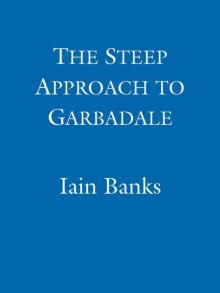 The Steep Approach to Garbadale
The Steep Approach to Garbadale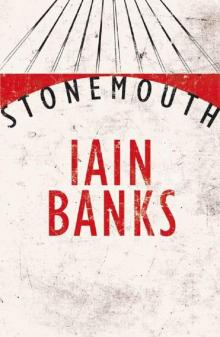 Stonemouth
Stonemouth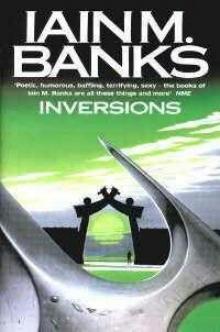 Inversions c-6
Inversions c-6 Raw Spirit: In Search of the Perfect Dram
Raw Spirit: In Search of the Perfect Dram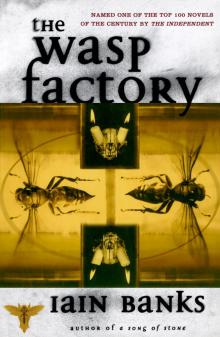 The Wasp Factory
The Wasp Factory Raw Spirit
Raw Spirit Walking on Glass
Walking on Glass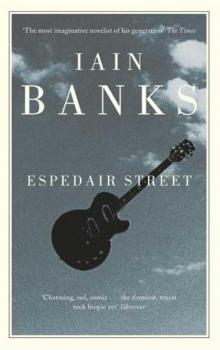 Espedair Street
Espedair Street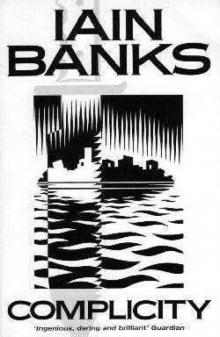 Complicity
Complicity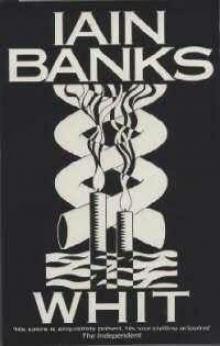 Whit
Whit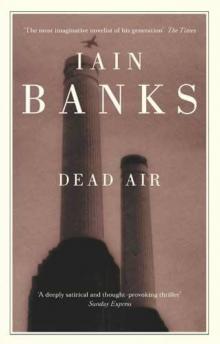 Dead Air
Dead Air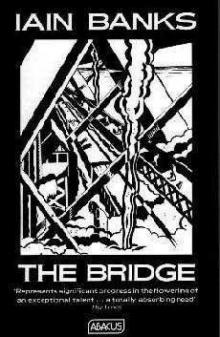 The Bridge
The Bridge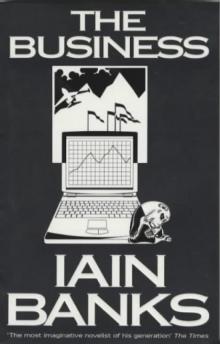 The Business
The Business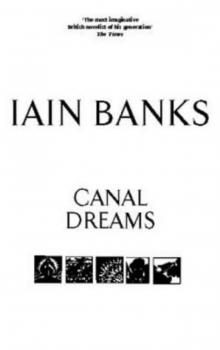 Canal Dreams
Canal Dreams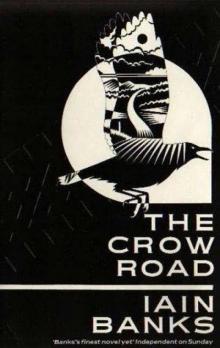 The Crow Road
The Crow Road